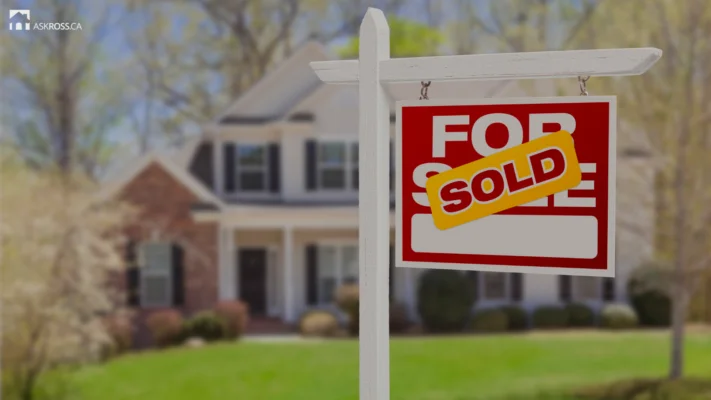
For Sale Home Financing
Understanding For Sale Home Financing
Buying a home that’s already listed for sale can be both exciting and overwhelming—especially when it comes to arranging financing. For Sale Home Financing refers to the financial solutions available to help buyers purchase residential properties currently listed on the market.
These financial options include everything from traditional mortgages to government-backed loans, rent-to-own agreements, and even private lending. The right financing solution depends on a buyer’s income, credit score, down payment capacity, and the property’s value.
This process is different from financing for new constructions or commercial properties. Instead, for sale homes typically involve pre-owned or newly built houses ready for immediate transfer.

Types of Financing Options for Homes Listed for Sale
When exploring financing for homes listed for sale, buyers have a wide range of options tailored to different income levels, employment statuses, and long-term financial goals.
Conventional Home Loans
These are standard loans provided by private lenders like banks and credit unions. They require a solid credit score (usually 620+), proof of steady income, and a down payment of at least 5%–20%. These loans work well for financially stable buyers.
FHA (Federal Housing Administration) Loans
Ideal for first-time buyers or those with limited savings, FHA loans offer low down payments (as low as 3.5%) and flexible credit requirements. These are government-insured and designed to help more people enter homeownership.
VA Loans (For Veterans)
If you’re a military veteran or active-duty personnel, you may qualify for VA loans—which offer zero down payment and no private mortgage insurance (PMI). This financing tool is often used for both newly constructed and existing homes for sale.
Rent-to-Own Financing
For buyers who aren’t mortgage-ready, rent-to-own agreements allow you to rent the home with the option to buy it later. A portion of your rent may go toward the eventual purchase price. This is popular for homes already listed for sale by owner.
Private and Peer-to-Peer Lending
With the rise of FinTech platforms, private lending and peer-to-peer financing are viable options for buyers unable to get traditional loans. These are ideal for self-employed individuals or people with inconsistent income histories.
How to Qualify for For Sale Home Financing
Before applying for financing, it’s essential to prepare your financial profile to improve your chances of approval and secure better interest rates.
Assess Your Credit Score
Most lenders require a minimum credit score to qualify. Aim for 620 or higher for conventional loans and 580+ for FHA loans. The higher your score, the lower your interest rate will likely be.
Stabilize Your Income
Lenders want to see a stable income and employment history—typically at least two years in the same job or industry. This gives them confidence in your ability to repay the loan.
Calculate Your Debt-to-Income Ratio (DTI)
Your DTI compares your monthly debts to your income. Most lenders prefer a DTI of 36% or lower. A lower DTI indicates you have enough financial breathing room to handle new mortgage payments.
Save for a Down Payment
Even though some loan programs offer zero or low down payment options, having more money saved improves your negotiating power and reduces your monthly payments.
Get Preapproved
Getting preapproved for a loan shows sellers you’re serious and financially capable. It also gives you a clear budget range when browsing homes for sale.
Benefits of Financing a For Sale Home
Choosing a home that’s already listed for sale offers several financial and logistical advantages—especially when compared to building from scratch.
Faster Move-In Time
Since the property already exists, you can close and move in quickly—sometimes within 30–45 days. Financing and inspection timelines are often more predictable.
Better Market Comparisons
For sale homes allow you to easily compare prices in the same neighborhood. This helps you and your lender determine a realistic market value, reducing the chances of overpaying.
Negotiation Flexibility
Sellers of existing homes may be more motivated to close quickly. You might be able to negotiate better prices, closing costs, or included repairs, especially if you already have financing lined up.
Existing Utilities & Infrastructure
You won’t have to deal with the complications of setting up electricity, water, or roads. This saves both money and time during the buying process.
Qualify for Special Programs
Many government programs are tailored specifically for the purchase of existing homes—for example, rural housing loans, state-based first-time buyer grants, or energy-efficiency rebates.
Emerging Trends in Home Financing for Listed Properties
The real estate finance landscape is evolving rapidly, offering new tools and systems to make home buying easier, safer, and more data-driven.
FinTech & Digital Mortgage Platforms
Online mortgage brokers and comparison tools help buyers get instant quotes, digital document verification, and even e-closings—all from their phone or laptop.
AI-Powered Loan Matching
Some platforms now use AI to analyze buyer profiles and instantly match them with lenders offering the best rates, lowest fees, or fastest closing timelines.
Smart Contracts in Real Estate
Blockchain-based smart contracts are beginning to simplify transactions for homes for sale. These contracts automate verification, fund release, and document transfers—making financing more transparent and secure.
Flexible Payment Models
Some lenders now offer custom payment plans, such as interest-only periods or step-up EMIs, for buyers who anticipate rising income in the near future.

Frequently Asked Questions (FAQs)
What is the focus keyword for this topic?
The focus keyword is: For Sale Home Financing
Is financing available for homes sold by owners?
Yes, you can finance homes listed “For Sale by Owner” through traditional or alternative lenders. Just ensure proper valuation and legal checks are in place.
What documents do I need to get financing?
Common documents include income statements, tax returns, credit reports, bank statements, and property details.
How long does it take to finance a home?
Depending on the lender and documentation, financing typically takes 30 to 45 days for conventional loans, and possibly longer for government-backed ones.
Can I get financing with bad credit?
Yes, but options may be limited. FHA loans and rent-to-own agreements are often available for buyers with lower credit scores.
Do I need a real estate agent to finance a home?
Not necessarily. But agents often assist in negotiating terms and handling paperwork, which can speed up the financing process.
What’s the difference between mortgage and home financing?
Mortgage is a type of home financing. “Home financing” is a broader term that includes various options like rent-to-own, cash-out refinancing, or peer-to-peer loans.
Is preapproval necessary?
Yes. Preapproval strengthens your offer and helps you know exactly what price range you can afford.
Can I finance a foreclosed home that’s for sale?
Yes, but the process may involve more due diligence. Some banks even offer special financing for their own foreclosed listings.
What happens if financing falls through?
If financing fails before closing, the deal may be canceled unless you have a backup lender. Always include financing contingencies in your purchase offer.
Regional Differences in For Sale Home Financing
Home financing doesn’t follow a one-size-fits-all rule. Different regions or countries have unique real estate dynamics, lender requirements, and government policies that affect how homes listed for sale are financed.
Urban vs. Rural Financing
In large urban cities like Karachi, Lahore, or Islamabad, financing for for-sale homes is often faster due to better access to private banks, online lenders, and property records. However, property prices tend to be higher, requiring bigger loans or down payments.
On the other hand, rural buyers may qualify for government-subsidized housing schemes or low-interest rural financing programs. The paperwork may be more complex, but the overall property prices are often lower, making homeownership more accessible.
Country-to-Country Financing Variations
In countries like Pakistan, India, or Bangladesh, home loans are often structured differently compared to Western countries. The approval process may involve personal guarantees, additional documentation, or even Islamic finance models like Murabaha or Ijara instead of traditional interest-based lending.
Buyers in the West (e.g., USA, Canada, UK) often have access to:
-
Fixed and variable-rate mortgage options
-
Credit-based lending systems
-
Automated underwriting and appraisal tools
-
Government-insured loan programs (FHA, VA, USDA, etc.)
Understanding your local lending rules is critical when pursuing financing for any home that’s up for sale.
How Real Estate Agents Help with Home Financing
A real estate agent doesn’t just help you find a house—they play a crucial role in the financing journey too.
Negotiating Price and Terms
Agents understand local market trends and help you make offers that are both competitive and aligned with your financial capacity. They can also negotiate for seller-paid closing costs or discounts if the home has been on the market for a long time.
Connecting You with Trusted Lenders
Experienced agents often have networks of trusted mortgage brokers or banking representatives who can offer better rates, faster approval, or flexible repayment plans based on your situation.
Helping with Paperwork
From submitting offer letters to coordinating with loan officers, appraisers, and underwriters, a real estate agent ensures every document aligns with your financing strategy—reducing delays and errors.
Common Mistakes to Avoid in For Sale Home Financing
Even with a great house and financing option lined up, small mistakes can cause delays or denials. Here are major pitfalls to avoid:
Ignoring Preapproval
Many buyers start house-hunting before getting preapproved. This can waste time and reduce your negotiation power. Always secure a preapproval letter first.
Changing Jobs Mid-Process
Switching jobs or reducing your income during the loan process can disqualify you—even if you’re otherwise eligible.
Taking On New Debt
Avoid getting a new credit card, car loan, or large expense on your credit report while your home loan is being processed. It can increase your debt-to-income ratio and affect approval.
Skipping Property Inspection
Even if financing is approved, a poor property condition can cause lenders to withdraw. A thorough inspection ensures the home meets all safety and legal standards.
1. What is meant by “For Sale Home Financing”?
It refers to the financial options available to purchase homes that are currently listed for sale, including mortgages, FHA loans, rent-to-own agreements, and private lending.
2. Can I get a loan for a home that’s for sale by the owner (FSBO)?
Yes, you can. Financing options like bank loans, credit union mortgages, or even rent-to-own agreements work for FSBO properties—just ensure all legal documents are verified properly.
3. What’s the difference between home loans and home financing?
“Home loan” is a specific term for borrowing money from a lender. “Home financing” is a broader term that includes loans, government schemes, installment plans, and alternative methods like rent-to-own.
4. Do I need preapproval before viewing for-sale homes?
While it’s not mandatory, getting preapproved helps you understand your budget, speeds up the buying process, and strengthens your offer to sellers.
5. What credit score is needed for for-sale home financing?
For conventional loans, a credit score of 620 or higher is usually required. FHA loans may accept scores as low as 580 with a minimum 3.5% down payment.
6. Can I get financing with no down payment?
Yes, options like VA loans (for veterans) or certain rural housing programs allow for zero down payment financing on qualified for-sale homes.
7. What are the risks of rent-to-own financing?
While flexible, rent-to-own can be risky if the seller backs out or misrepresents the property. Always sign a legal agreement and consult a property lawyer before committing.
8. How long does it take to complete the financing process?
Typically, it takes 30 to 45 days from loan approval to closing, depending on the lender and how quickly you submit required documents.
9. Can I use Islamic financing for for-sale homes?
Yes. In many countries including Pakistan, Islamic banks offer Shariah-compliant home financing options like Ijara or Murabaha for both newly constructed and for-sale homes.
10. What happens if my financing is denied after making an offer?
If your financing falls through, your offer may become void—unless you included a financing contingency in your purchase agreement. Always include one to protect your deposit.




